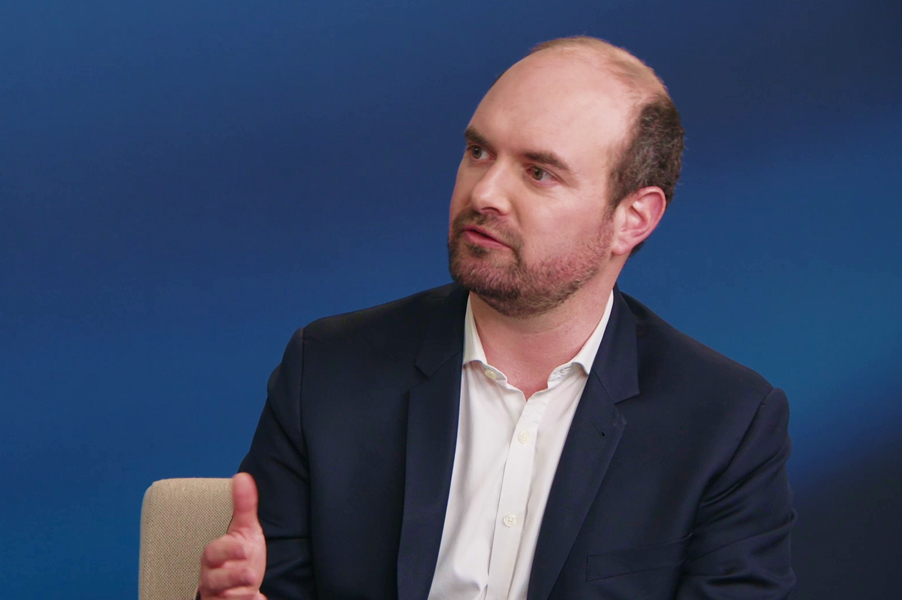August 4th, 2025
3 min read
Cathay Innovation is a global venture capital platform investing in startups positively impacting the world through technology. Matthieu Soulé is Partner/Head of C.Lab, Cathay Innovation’s strategic advisory arm dedicated to the open transformation of large corporations. He brings vast international experience to this role.

Soulé shares his insights on the opportunities AI presents and the value of strategic partnerships.
Bridges and Barriers
With €2.5 billion under management, Cathay Innovation’s investment strategy is focused on identifying and nurturing high-growth startups across four key sectors: financial services, mobility and energy, digital health and consumer retail. But it’s not just about financial investment; it’s about the potential of emerging technologies to build the businesses of tomorrow.
Cathay Innovation’s C.Lab arm helps major corporations tap into the world of startups, providing the tools and insights they need to navigate the fast-evolving and complex landscape.
As Soulé explains, “Startups are at the cutting edge of technological innovation. But for these innovations to scale and succeed, they need the deep industry knowledge and resources that large corporations can offer.” This mutually beneficial relationship, where startups benefit from corporate expertise, and corporations get the agility and fresh ideas startups bring, is critical.
Through C.Lab, corporate partners can identify investment, R&D and acquisition opportunities within the tech ecosystem, finding breakthrough technologies that could transform their operations or even define the next era of business.

One key technology is AI. But Soulé warns that gaining a competitive edge requires more than just investing in AI technologies. “AI is no longer a differentiator; it’s a standard. What sets the winners apart is access to proprietary data, particularly in regulated sectors like finance and healthcare. Without access to proprietary, high-quality data, even the most sophisticated AI algorithms are limited in what they can achieve.”
This is where strategic partnerships are so important. According to Soulé, “Startups need access to real-world data and deep industry expertise – two things corporations have in abundance. But it’s not just a one-way street. Corporations need the speed, flexibility and disruptive innovation that startups can deliver. Together, they can accelerate each other’s growth.”
Cathay Innovation invested into Owkin’s series A in 2018, a pioneering French-American biotech startup using AI for drug discovery. In 2021, Owkin signed a strategic partnership with global biopharma Sanofi, one of Cathay Innovation’s investors and corporate partners, including a $180M investment and a strategic multi-year collaboration researching treatments for four cancers. Since then, they continue to work together in AI-driven precision drug discovery, announcing an expansion of their partnership in 2024 to include immunology.
The future of AI-driven innovation isn’t about choosing between startups or corporations. It’s about strategic partnerships that unlock data, industry expertise and global market access.
AI in Society
As AI continues to revolutionize industries, global regulations are struggling to keep up. While the potential for AI is vast, its adoption is subject to varying regulatory frameworks across different regions. This creates a unique challenge for businesses looking to scale AI solutions worldwide.
Soulé explains, “Navigating the AI regulatory landscape requires a delicate balance. Companies need to adopt cutting-edge technology, but they also have to stay compliant with regional laws and regulations.”
And, as companies look to implement AI, one of the toughest questions they face is: Should they buy, build, or partner? For many corporations, this decision is not straightforward. Building in-house AI capabilities can be time-consuming and costly. Acquiring startups, while offering the potential for quick market entry, comes with the challenge of integrating new technologies and cultures. Partnering with startups can offer agility but may require a longer-term investment in collaboration.
Soulé believes the answer depends on the corporation’s strategic goals and existing capabilities. “There’s no one-size-fits-all solution. Corporations need to assess their resources and determine which approach will provide the most value in the long run. For some, it may be building in-house. For others, partnering with the right startups may be the fastest and most effective way forward.”




